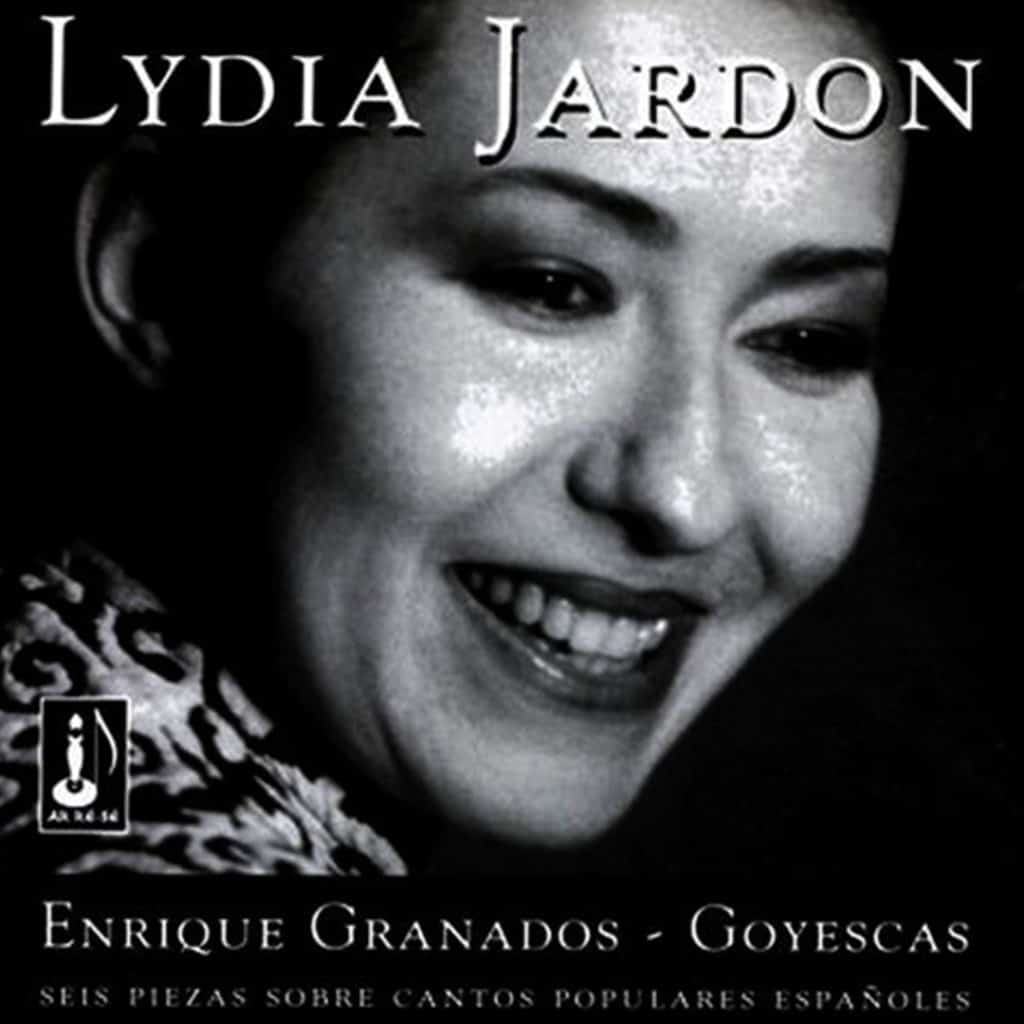Product details
Goyescas
6.epilogo, Serenata del Espectro
Seis Piezas Sobre
Cantos Populares Españoles Prelude
9.Vascongada
10. Marcha oriental
11. Zambra
12. Zapateado
Total time : 66'35 "
Recorded at Javols church (Lozère, France), from 11 to 14th September 2012.
Artistic direction: Maurice Bourbon, Jean-Marc Laisné
Recording, Editing and mastering : Jean-Marc Laisné
Graphic conception : marc-guerra.com
Pictures : Nima Yeganefar
Rights reserved for all pictures.
Our special thanks to M. Malavieille, mayor of Javols, and to the hostel Le Regimbal for the quality of their hospitality.
Producer : L'homme armé éditions
La Chapelle des Flandres
Distribution : Codaex
Translation : Marcia Hadjimarkos
AR RE-SE 2014-3
Bach...
The composer Johann Sebastian Bach, who was also a virtuoso instrumentalist (harpsichord, organ, violin), complained all his life about bad instruments and poor performers, and was always on the lookout for talent. He asked the tenor of the choir to replace the failing first violin, but then he ran out of tenors.
At the age of eighteen, we see him taking out his sword in the street to defend himself from an execrable bassoonist whom he had called an "old goat" at rehearsal, and who was waiting for him in the street with a stick... Three years before his death, when he was received by Frederick II, he rushed to Silbermann's pianoforte, conquered by their possibilities, on which he improvised magnificent fugues on themes that were given to him at the time, and which would give birth to the Musical Offering. It is therefore easy to imagine Bach discovering the accordion and its immense possibilities: its flexible and limitless dynamics, in direct contact with the bellows, capable of reproducing all the dynamics and the slightest phrasing, like a human voice, its registers, comparable to those of the organ, the virtuosity it allows, with its sophisticated palette of buttons, and its extreme manoeuvrability, that of a portable organ. Of course, he would also have foreseen its limitations, induced by an equal right/left hand dynamic, but would have guessed that this could be compensated by the skill of the performer. The sanguine Bach would therefore perhaps have pushed Bogdan Nesterenko a little to take his place and try out this incredible new instrument. But in spite of his prodigious gifts, he would probably have quickly returned it to its owner, after having noticed the extreme difficulty and specificity of the practice! The fortunate chance of life brought me into contact with Juliette de Massy, whose first steps as a soprano I had the privilege of guiding, and the accordionist Bogdan Nesterenko.
So it was only natural that the idea came to me to bring together these two unique young talents in the ambitious project Comme un air de passions...
Maurice Bourbon
The press is talking about it!
"This disc, recorded in 1995 and reissued in a new presentation, was relatively unnoticed when it was released. However, the pianist Lydia Jardon, winner of the Cziffra Foundation and the Milosz Magin competition, performs with fire the six Goyescas and the Six Pieces on Spanish Folk Songs by Granados composed around 1910. Under her fingers, the flamboyance of the colours and the melodic design engraved in drypoint take on a striking relief (Fandango de candil). With a consummate art of sensuality and drama, she manages to bring out all the Hispanic sap contained in these works (Zapateado). Her commitment in no way hinders her ability to respect the rhythmic vigour (Epilogo, Serenata del espectro) and the nuances intended by the composer (Los requiebros, El Amor y la Muerte). A fairly analytical recording provides immediacy and clarity of sound without detracting from the soloist's musical intentions. The most diverse states of the human comedy expressed in Goya's paintings take on a dimension that is by turns caustic and passionate, but with a stylistic restraint learned from his masters Milosz Magin and Hüseyin Sermet. Lydia Jardon, of Catalan origin, speaks the language of Granados and moves with great ease in this universe of very personal lyricism. She does not try to imitate the legendary Goyescas of Larrocha, nor the austerity of Ciccolini or the excesses of imagination of Luisada, the restraint of Del Pueyo or the impressionistic poetry of Achucarro in these same pages. His quicksilver energy is always tempered by a nobility of tone that refuses to be pathos and thus makes this disc captivating.
January 2001, Michel Le Naour

"Recorded in 1995, this disc is only now being released, following an excellent performance by the pianist of Rachmaninov's Sonata No 2. It is a pleasure to hear the suppleness and beauty of her playing in a repertoire dominated by male interpreters, with the exception of the unavoidable Alicia de Larrocha. And it is to her that one thinks when listening to Lydia Jardon, whose Goyescas breathe comparable perfumes. Each piece is approached in a different climate, sometimes more in the spirit of Fauré than in that of a pure and futile recomposition of Spanish folklore. Quejas o la Maja y el Ruisenõr balances lyricism and confidence, and the narrative of the epilogue, Serenata del Espectro, is perfectly mastered. The six (seven with the prelude) Pieces on Spanish Folk Songs are an intelligent complement to the refinement of the Goyescas: the dances are at once rustic, brilliant and without ulterior motives. Performed as such, and with a better sound recording, they show two aspects of the music of Granados, who is sometimes wrongly regarded as an epigone of Albeniz. Perhaps Lydia Jardon will continue to explore Hispanic music, and why not South American? This repertoire suits her perfectly.
December 2000, Stéphane Friédérich

